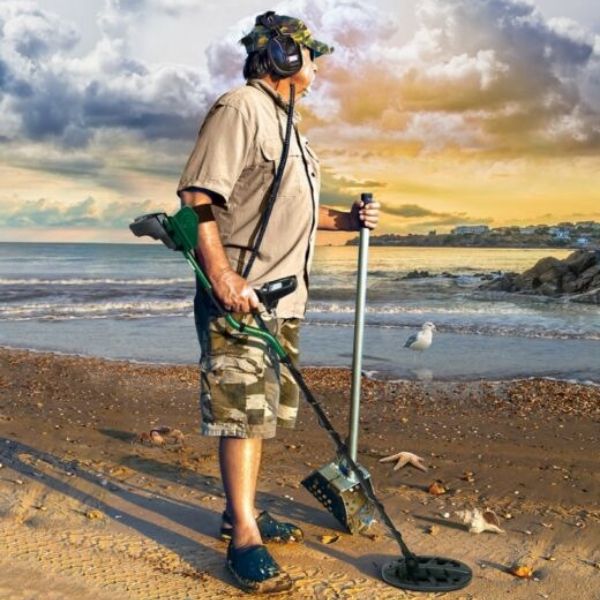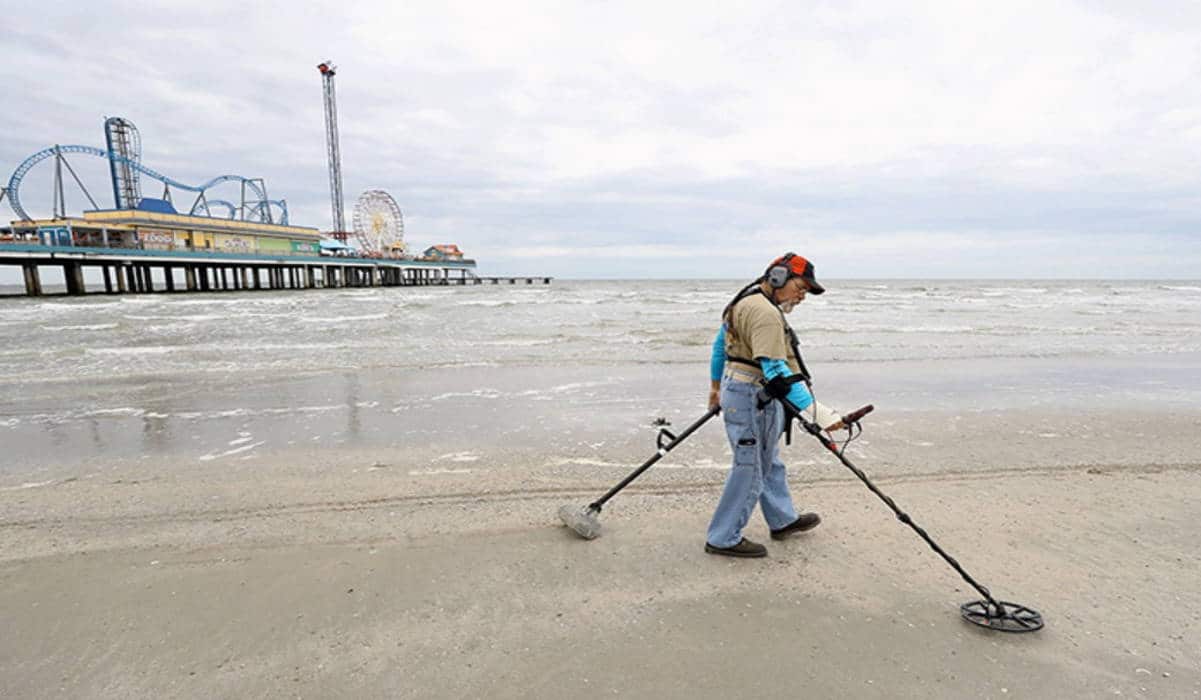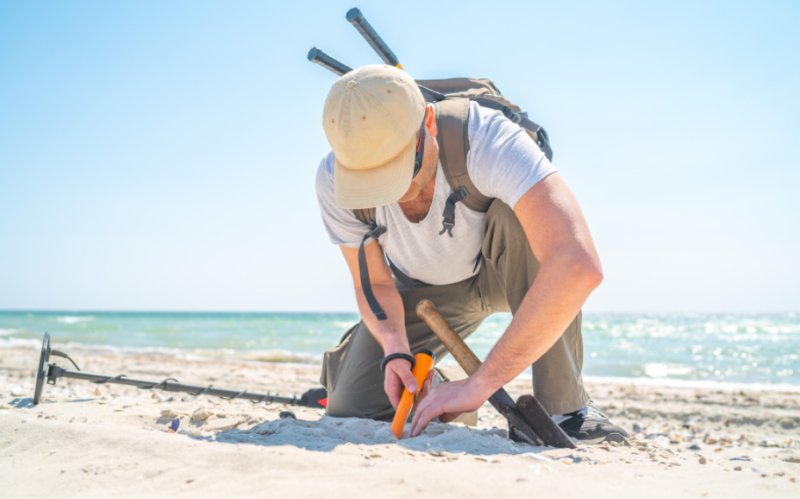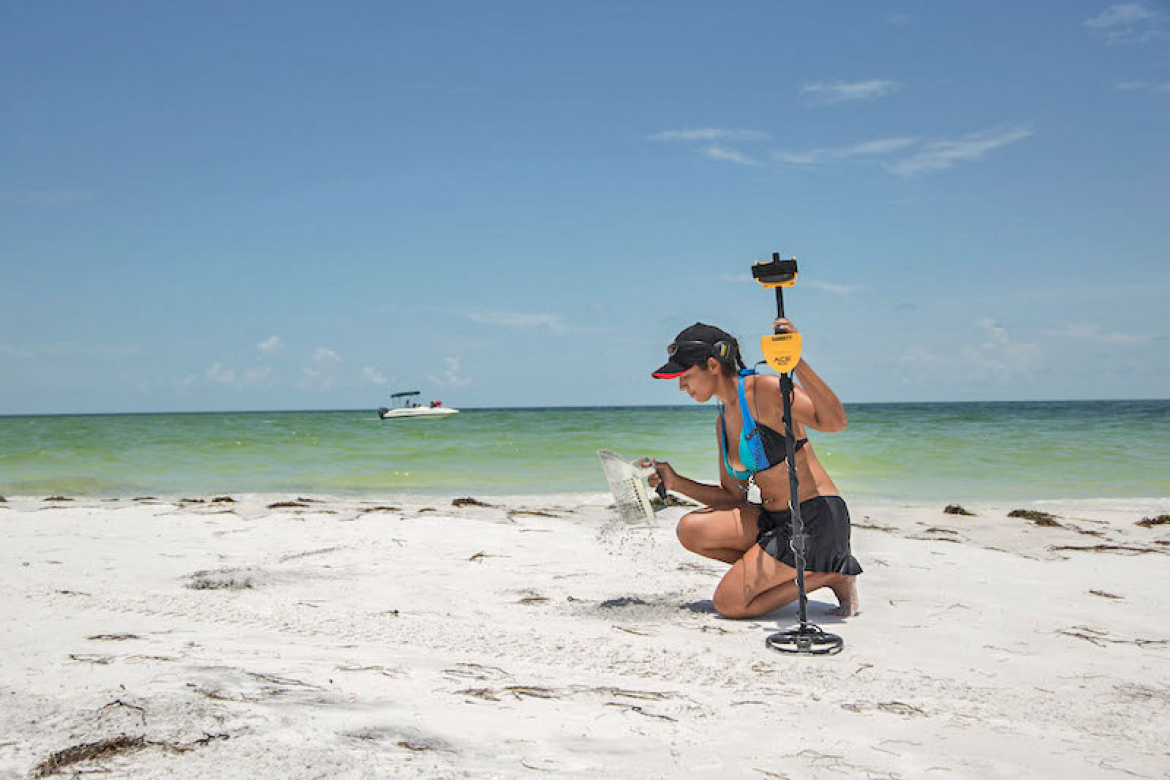If you’ve ever thought about combining your love for the outdoors with the thrill of treasure hunting, you might have asked yourself, can you metal detect on beaches? This article explores everything you need to know about beach metal detecting, from legal considerations to travel tips and the best equipment to use. Join me as I share personal travel experiences and useful insights into the exciting world of metal detecting on sandy shores!
The Allure of Beach Metal Detecting
Metal detecting on beaches is not just a hobby; it’s an adventure! The sound of the waves crashing, the warmth of the sun on your back, and the thrill of possibly finding something valuable beneath your feet make for an exhilarating experience. During my travels, I’ve spent countless hours on various beaches, all in search of hidden treasures. From stunning coastlines in Florida to the rugged shores of California, each beach has its own story waiting to be uncovered.
Is It Legal to Metal Detect on Beaches?
Before you grab your metal detector and charge onto the sand, it’s crucial to understand the legalities surrounding beach metal detecting. The rules can vary significantly based on location:
Understanding Local Laws and Regulations
Many beaches have different regulations concerning metal detecting, often depending on whether the beach is public or private, and whether it falls under state or federal jurisdiction.
- Public Beaches: Usually, metal detecting is allowed, but check for local laws.
- Private Beaches: Always seek permission from the property owner.
- Protected Areas: Sites such as state parks and historical landmarks often have strict prohibitions.

Essential Beach Metal Detecting Tips
If you’re ready to dive into the world of beach metal detecting, here are some essential tips to ensure a successful hunt.
1. Choose the Right Time
The best times to detect metals on beaches are during low tide or after significant weather events like storms, which can expose new areas of sand and treasure.

2. Invest in a Quality Metal Detector
Using the right metal detector is crucial. Look for models specifically designed for beach use, which are often waterproof and can differentiate between types of metals.
3. Learn Your Machine
Familiarize yourself with your metal detector’s settings and features. A detector’s sensitivity, discrimination settings, and depth indicators can significantly impact your success rate.

4. Work Your Way Carefully
Be thorough! Sweep side to side and overlap your paths to ensure you cover every inch of the sand in your search area.
5. Respect the Environment
Always fill in any holes you dig and take any trash with you. Leave the beach cleaner than you found it!

Best Beaches for Metal Detecting
While you can metal detect on many beaches, some locations are more favorable than others due to their history or the number of visitors. Here’s a list of some top beaches around the United States known for metal detecting:
1. Clearwater Beach, Florida
With its powdery white sand and family-friendly atmosphere, Clearwater Beach attracts millions of visitors each year, making it a prime spot for finds!

2. Coronado Beach, California
Known for its historical significance and scenic beauty, Coronado Beach is perfect for detecting lost jewelry and more.
3. Waikiki Beach, Hawaii
The bustling tourist spot also hides treasures beneath its sands, from coins brought by tourists to lost surfing gear.

4. Ocean City Beach, Maryland
This vibrant beach has seen countless visitors, increasing the chances of finding something unique.
Comparative Analysis of Popular Metal Detectors
When choosing a metal detector for beach use, consider the following comparison of some top products available online:
| Model | Type | Waterproof | Price Range | User Rating |
|---|---|---|---|---|
| Minelab Excalibur II | VLF | Yes | $$$ | 4.7/5 |
| Garrett AT Pro | VLF | Yes | $$ | 4.8/5 |
| Fisher F22 | VLF | No | $ | 4.5/5 |
| Bounty Hunter TK4 Tracker IV | VLF | No | $ | 4.2/5 |
Incorporating ratings from popular eCommerce sites, it’s clear that both the Minelab Excalibur II and Garrett AT Pro are highly regarded and recommended for beach detecting due to their waterproof capabilities and advanced features.

Pros and Cons of Beach Metal Detecting
Like any activity, beach metal detecting has its ups and downs. Here’s a breakdown to consider:
Pros
- Exciting way to explore and enjoy the outdoors.
- Potential for valuable finds, from coins to jewelry.
- Great way to meet fellow enthusiasts and share experiences.
Cons
- Can be time-consuming with no guaranteed finds.
- Legal restrictions may vary widely.
- Equipment can be costly upfront.
Travel Tips for Metal Detecting Enthusiasts
Before you head out for a metal detecting trip, consider these travel tips to enhance your experience:
1. Research Your Destination
Before traveling, research the beaches you plan to visit. Look for recent finds, the best areas to search, and any regulations.
2. Pack Smart
Along with your metal detector, pack a digging tool, headphones for better sound isolation, and a pouch for found items.
3. Stay Safe
Always stay hydrated, apply sunscreen, and be mindful of the weather conditions. It’s essential to prioritize your health while seeking treasures!
Personal Experiences: Treasure Hunting Tales
On my first metal detecting trip to Clearwater Beach, I spent hours scanning the sand, feeling the excitement build with every beep of my detector. I ended up finding a beautiful silver ring that sparkled in the sun. The joy of uncovering a piece of someone else’s story was unparalleled! Such experiences are what keep me returning to the beaches with my detector in hand.
FAQs About Beach Metal Detecting
1. Can you metal detect on every beach?
Not necessarily. Always check local regulations to ensure you’re allowed to metal detect on a particular beach.
2. What type of metal detectors are best for beaches?
Waterproof metal detectors with beach-specific features, such as the ability to filter out salt, are ideal for beach conditions.
3. Do I need a permit to metal detect on the beach?
Some beaches may require a permit for metal detecting, particularly in national parks or protected areas. Always verify before starting your hunt.
4. What kind of treasures can you find on the beach?
You can find a range of items, including coins, jewelry, relics, and even unique finds like metal detectors forges or lost watches!
Conclusion
Metal detecting on beaches combines adventure, exploration, and relaxation. With the right tools, knowledge of the laws, and respect for the environment, you can uncover hidden treasures while enjoying the sun and surf. Remember to embrace the journey, as every dig can tell a story!